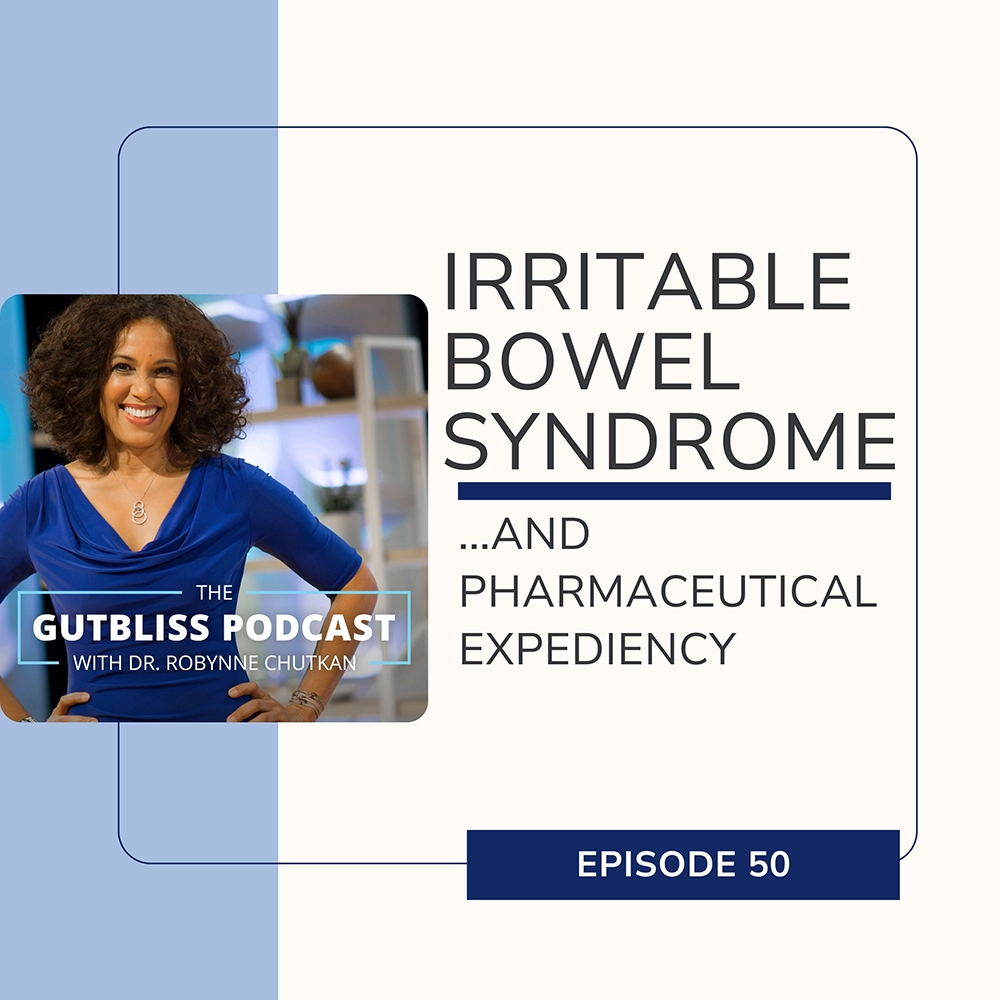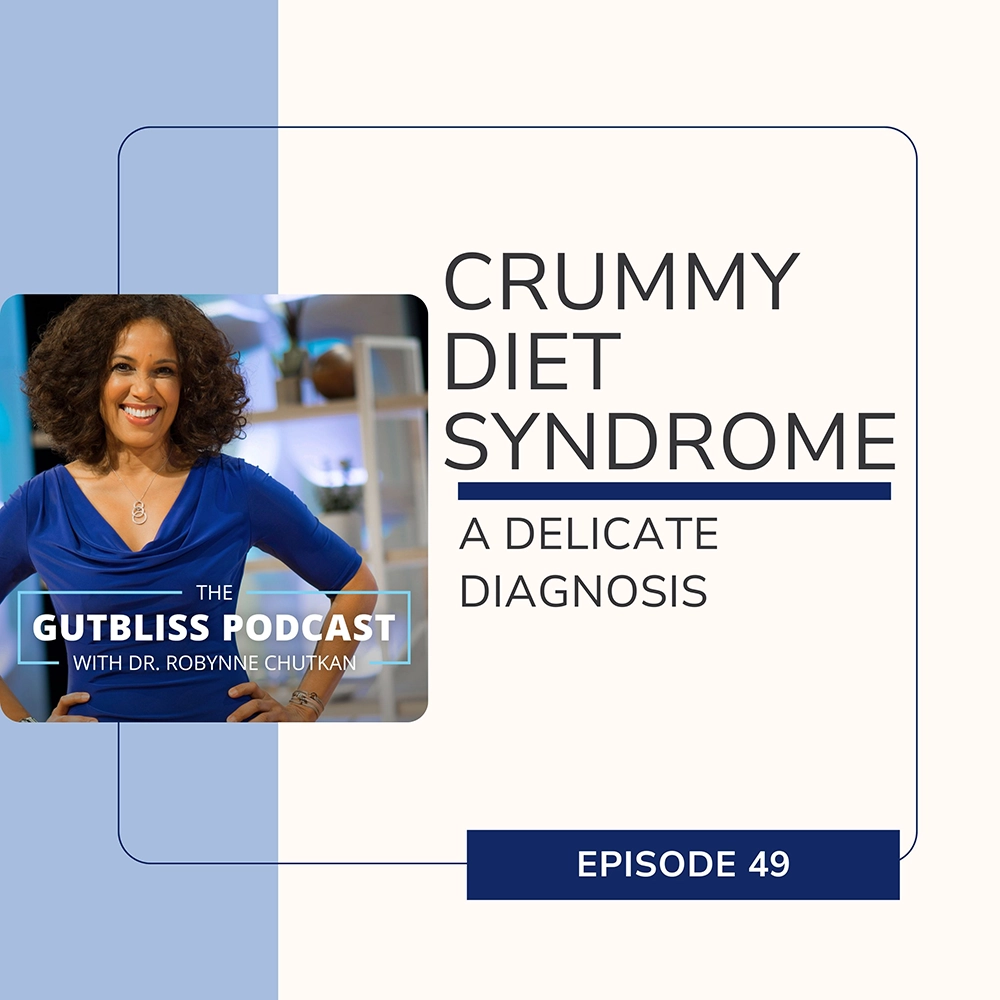On today’s show I’ve curated a list of nine important things your digestive system does that I want you to know about…
1. It’s the engine for your entire body. Just take a look at where it’s located – in the center of your body. It literally feeds your brain, your lungs, your immune system, your heart, your kidneys. If your gut health is not optimized, it means that even if you’re eating a super healthy diet, those nutrients are not going to be properly digested and absorbed. So gut health is key to overall health.
2. The vast majority of your immune system is physically located in your GI tract. You have your trillions of microbes in this hollow tube, called your intestines, and they are separated from your immune system by your gut lining and that is a one cell thick membrane that provides a physical barrier between what’s in your GI tract and what’s in the inside of your body on the other side of that gut lining. And one of the most important things on the other side of that gut lining is your immune system. The cells that make antibodies and cytokines and all the different things your immune system creates to defend you against not just infection but also cancer. Those things are on the other side of your gut lining. So you have this hand and glove relationship where you have your gut microbiome on one side, and your immune system on the other, and they are in constant communication
3. Your GI tract has its own nervous system called the enteric nervous system, and this is sometimes referred to as the second brain in your gut. That second brain is intimately connected to your other brain, your central nervous system. And just like with your immune system, there is constant communication back and forth between the two organs. Your gut sends messages to your brain and your brain sends messages to your gut. What kinds of messages? Well, the signals from your brain impact absorption of nutrients in your gut, motility of your gut, and enzyme secretion in your gut, and the signals from your gut to your brain influence your mood, your cognition and your memory. And this isn’t just a chemical or hormonal communication, there is literally a physical connection between the two organs through the vagus nerve that originates in the base of your brain and extends down through your neck and chest into your abdomen, where it branches out to your stomach, small intestines, liver, and pancreas. This connection plays a critical role in maintaining digestive health, regulating your mood, and influencing your overall well-being. When we come back, what you need to know about that icky sticky stuff that’s one of your body’s most important protective mechanisms.
4. That “icky sticky stuff that’s one of your body’s most important protective mechanisms” is mucus, a substance that’s a cross between Jell-O and glue and lines the internal surfaces of your nose, lungs, and intestines, which are in contact with the outside world, keeping them moist and healthy. But mucus plays a much bigger role than just a lubricant; one of its most important functions is to protect you from infections. Microscopic bristles in mucus trap viruses and bacteria, which then get coughed or snorted out, or swallowed and inactivated by stomach acid. When you think about mucus, you probably think about the respiratory tract – your lungs and airway – but it’s actually your digestive tract, not your lungs, where most of your body’s 1.5 liters a day of mucus is made by cells in your gut called goblet cells. Pathogens have to penetrate this overlying mucus layer to gain access to the cells they’re trying to infect which are located below the mucus layer. To put it in perspective for you, the protective barrier that mucus provides is about five thousand times the diameter of a virus like polio. The analogy would be a human wading through 150 gel-filled football fields to reach the end zone and score a touchdown. I also want to point out that your stomach produces hydrochloric acid strong enough to burn skin, and it’s that thick layer of mucus in your stomach that protects the lining from this powerful acid.
5. You have about 22,000 human genes in your body and between 4 and 8 million microbial genes. Those microbial genes are not just passive passengers that travel with the microbes; they play a crucial role in your health, influencing everything from digestion and nutrient absorption to training and regulating your immune system.
6. The total surface area of your digestive tract is about the size of a studio apartment – around 400-500 square feet. Since your GI tract is only about 30 feet long, how do you end up with so much square footage? This much larger surface area is because of large folds in your GI tract called plicae circulares, and villi – which are finger-like projections, and these are all designed to increase the surface area for absorption, so that you have a much larger area through which nutrients can be absorbed. Coming up – what your GI tract reveals about your risk of serious infection.
7. The number one predictor of severity after you’re exposed to a viral illness like COVID is not your age, or whether you have heart disease or lung disease, or are overweight. It’s the composition of your gut microbiome. A study published in 2021 in the journal Gut found that the amounts of “bad bacteria” like Enterococcus faecalis and the levels of “good bacteria” like Faecalibacterium Prausnitzii could predict outcome from COVID with 92% accuracy. By far the most accurate indicator. And by predict severity I mean it can tell us whether you’re going to have mild symptoms, severe symptoms, end up on a ventilator, or are at high risk of dying from COVID.
8. There is no doubt in my mind that we are going to look back a couple decades from now and shake our heads in disbelief at the amount of gallbladders, appendixes, and uteruses that have been surgically removed for quite frankly, no good reason. While these organs can develop problems, like gallstones, inflammation and fibroids, that doesn’t mean the solution is to remove them. If you had a sprained ankle, I wouldn’t recommend an amputation! I’d tell you to stay off the ankle and suggest some rest, ice, and elevation. So too, the majority of problems that develop in these organs can be successfully treated non-surgically. A low-fat diet can resolve a lot of gallstone issues. Antibiotics will successfully treat most cases of appendicitis. And fibroids can usually be treated with hormonal therapy rather than surgical removal. The motivation behind surgical procedures is often commerce, not better outcomes, so you need to keep that in mind if that’s what’s being recommended.
9. The sleep hormone melatonin is made from the precursor hormone serotonin, a neurotransmitter that is synthesized in your digestive tract by gut bacteria. So if your gut microbiome is off, it means that not only is serotonin production affected, which can affect your mood and brain function, but your sleep is also likely to be disrupted.
I want to leave you with three takeaways about your GI tract:
1. It’s the engine for your entire body and literally all your organs depend on digestion and proper nutrient absorption for their fuel.
2. It’s closely linked to other essential organs like your brain and your immune system, and their function is highly dependent on having a healthy gut.
3. The most important tool in your toolbox for optimizing gut function is your fork. Food is medicine. Especially when it comes to gut health.
So that’s it for this episode of the Gutbliss Podcast on “9 things You need to Know about Your Gut”. We did it! We completed an entire season: 52 episodes of the Gutbliss podcast, and we did it together. There’s no podcast without an audience so thank you so much for listening. A special thank you to my editor, Mike Goehler, and my web developer, Joe Carbe. You are truly the best and I’m so grateful to both of you.
So what’s in store for Season 2? So many exciting things, including a transition to video, which I talked about last week and confessed I’m both terrified and excited about. More guests, including generous patients who are going to be sharing their digestive health journeys, as well as some amazing experts with information we all need to know about. If you’re interested in being a patient guest on the Gutbliss podcast, please use the contact form at Gutbliss.com – we would love to hear from you!









